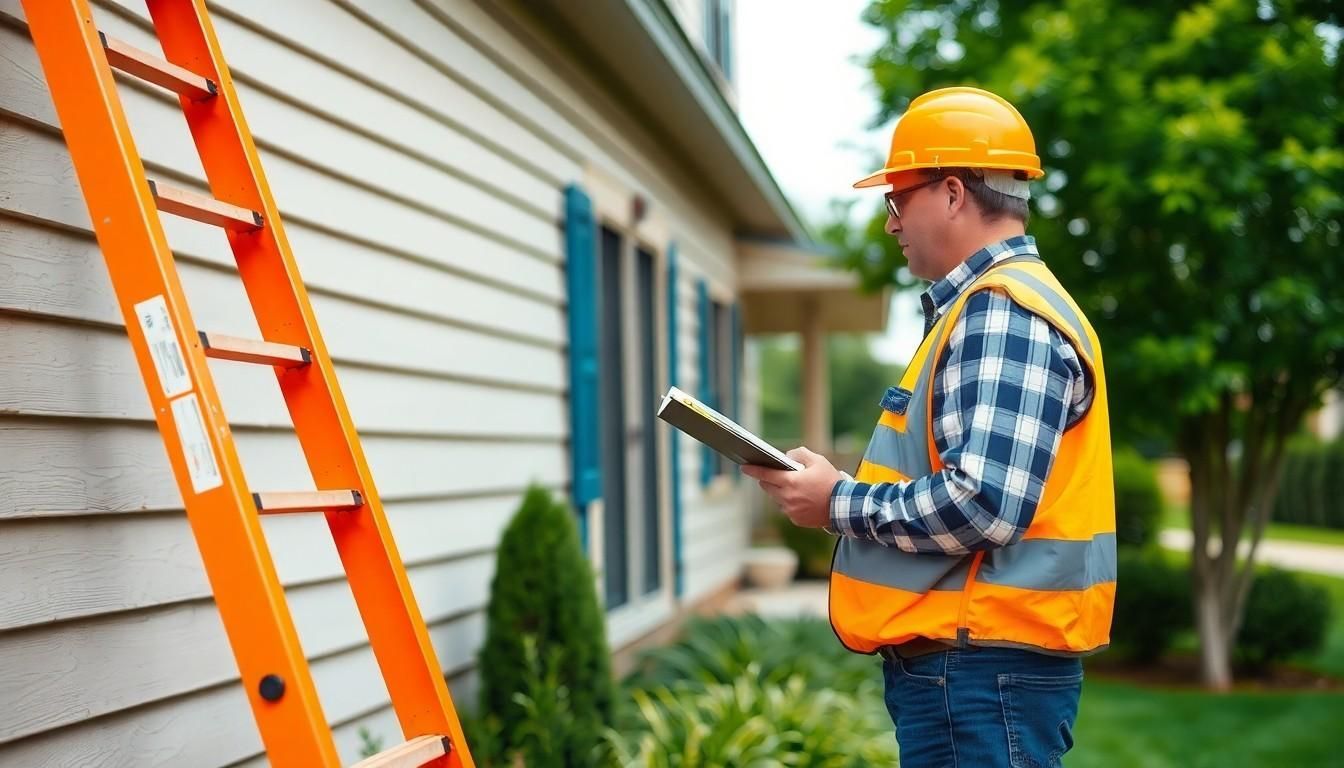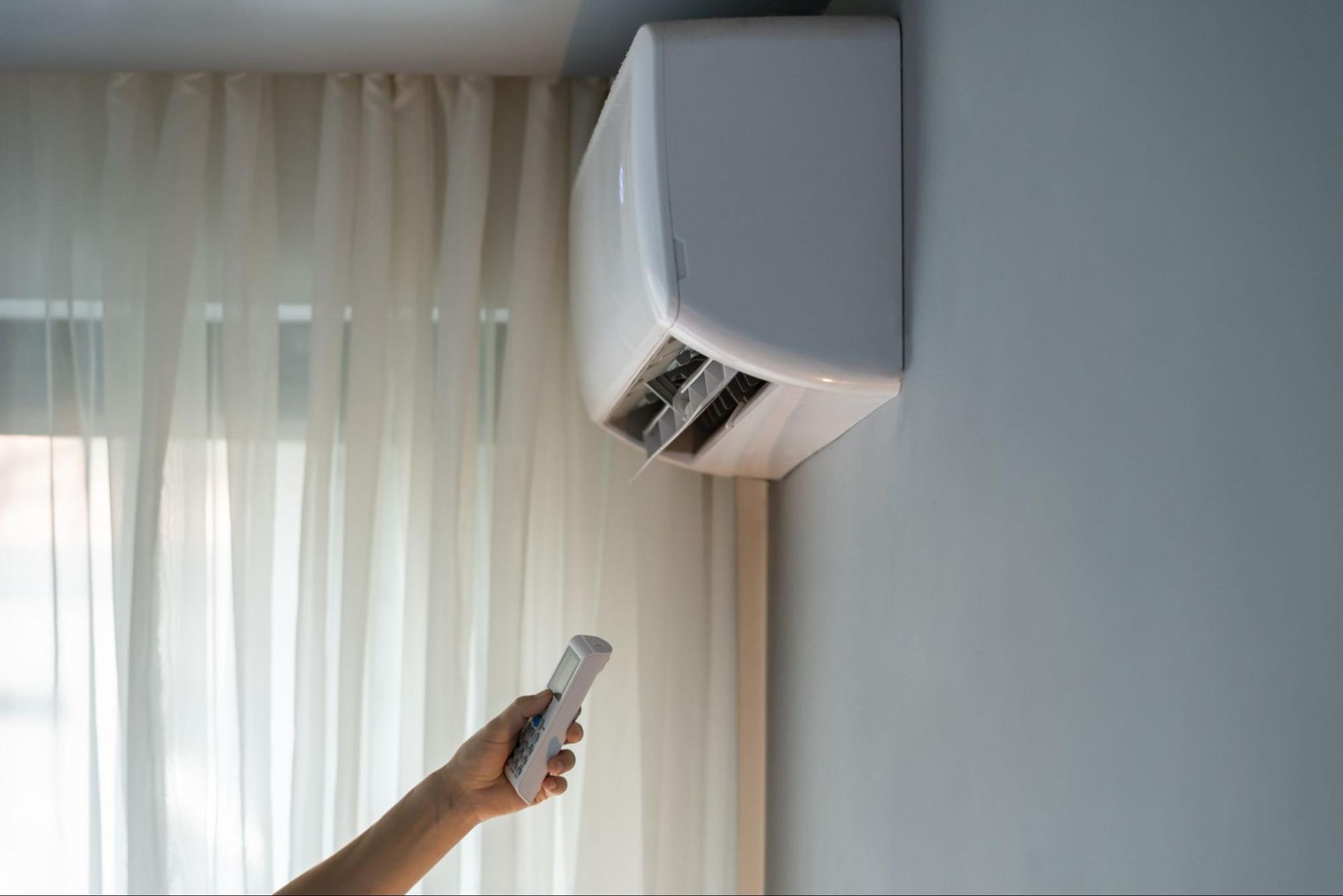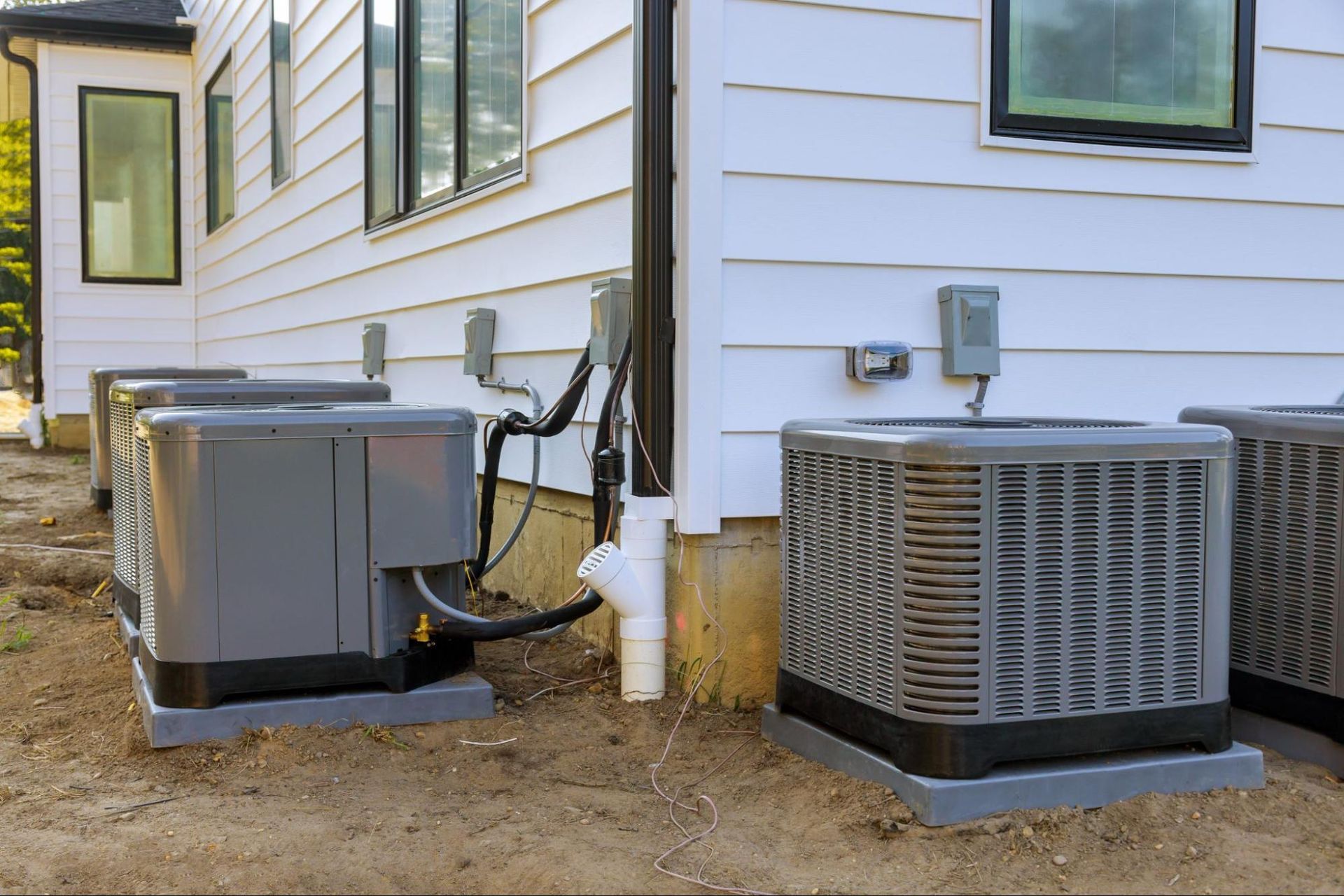Dealing with Energy Code Inspections in Greater Houston: Your Complete Guide
Dealing with the intricate world of energy code inspections in Greater Houston can be daunting for property owners. From confusing regulations to inconsistent evaluations, many homeowners find themselves frustrated with the time-consuming process that often leads to unexpected expenses and delays.
Accurate Home and Commercial Services understands these challenges and offers comprehensive solutions tailored to Greater Houston's specific energy codes. Their team of certified professionals delivers reliable, thorough inspections that ensure properties meet all current regulations while identifying potential energy efficiency improvements. With their stress-free approach, property owners can confidently navigate energy compliance without the typical headaches associated with inspections.
Energy Code Inspections in Greater Houston
Energy code inspections in Greater Houston evaluate a property's compliance with established energy efficiency standards. These inspections check critical elements such as insulation, air sealing, HVAC equipment, and window performance to ensure buildings meet minimum energy conservation requirements.
What Energy Codes Apply in Greater Houston?
Greater Houston follows the International Energy Conservation Code (IECC) with local amendments. Different municipalities within the region adopt specific code versions, creating a patchwork of requirements across Harris County, Montgomery County, Fort Bend County, and surrounding areas. Property owners must identify which jurisdiction's energy codes apply to their specific location to ensure compliance.
The Energy Inspection Process
Energy code inspections typically occur at multiple stages during construction. Inspectors examine foundations and wall assemblies before drywall installation to verify proper insulation values, assess air barrier continuity, and check mechanical systems. Final inspections confirm that all energy-related components meet the applicable standards before occupancy permits are issued.
Common Energy Code Compliance Issues
Builders and property owners frequently encounter several compliance challenges during energy inspections in Greater Houston. These include inadequate insulation installation, improper air sealing at building envelope penetrations, missing documentation for equipment efficiency ratings, and non-compliant window specifications. Addressing these issues early saves time and prevents costly rework.
Benefits of Professional Energy Code Inspection Services
Professional energy code inspections from qualified providers like Accurate Home and Commercial Services offer numerous advantages. Property owners gain peace of mind knowing their buildings meet legal requirements while benefiting from reduced energy costs through efficient systems. Expert inspectors identify potential issues before they become expensive problems and provide documentation needed for permit approvals and certifications throughout Greater Houston.
The Evolution of Energy Codes in Houston
Energy codes in Houston have undergone significant transformation over the decades, adapting to changing environmental concerns and technological advancements. The city's approach to energy efficiency requirements has shifted from minimal guidelines to comprehensive standards that address multiple aspects of building performance.

The International Energy Conservation Code (IECC)
The IECC serves as the foundation for Houston's energy regulations, providing a model code that establishes minimum design and construction requirements for energy efficiency. First developed in 1998, the IECC undergoes updates every three years to incorporate new technologies and best practices. The code addresses crucial elements including building thermal envelope performance, air leakage control, mechanical systems efficiency, and lighting power requirements. Houston typically adopts new versions of the IECC with a slight delay, allowing the construction industry time to adjust to changing requirements. The adoption process involves review by local building officials and input from stakeholders such as builders, architects, and energy specialists who evaluate how new provisions align with Houston's unique climate challenges.
Houston's Local Amendments
Houston customizes the IECC through local amendments that address the region's specific climate conditions, construction practices, and energy priorities. These amendments often modify insulation R-values, glazing requirements, and HVAC efficiency standards to better suit Houston's hot, humid climate where cooling loads dominate energy usage. The city's amendments sometimes relax certain provisions while strengthening others based on cost-effectiveness and practical implementation considerations. Houston's energy code inspection process reflects these local variations, requiring inspectors to verify compliance with both the base IECC requirements and Houston-specific amendments.
Property owners in Greater Houston face particular challenges navigating these localized energy code requirements that can vary significantly between neighboring jurisdictions. Understanding these local amendments proves essential for successful energy code inspections in Greater Houston, as inspectors evaluate buildings against these specific modified standards rather than the generic IECC.
Key Components of Energy Code Inspections
Energy code inspections in Greater Houston focus on several critical elements that determine a property's overall energy efficiency and code compliance. These comprehensive evaluations examine specific building components to ensure they meet established standards for energy conservation and performance.
Building Envelope Requirements
Building envelope inspections evaluate how effectively a structure separates conditioned from unconditioned spaces. Inspectors examine insulation R-values in walls, ceilings, and floors to verify they meet Greater Houston's specific requirements based on climate zone. Air sealing receives particular attention, with inspectors checking for gaps around windows, doors, electrical outlets, and other penetrations that could allow conditioned air to escape. Fenestration inspections assess window and door U-factors and Solar Heat Gain Coefficients (SHGC) to ensure compliance with Greater Houston's energy code requirements. Weather-stripping integrity, foundation insulation, and roof reflectivity are also examined during comprehensive building envelope inspections. Proper documentation of installed materials, including manufacturer specifications and installation certificates, must be available for verification.
HVAC System Compliance
HVAC system inspections verify that heating, ventilation, and air conditioning equipment meets Greater Houston's energy efficiency standards. Inspectors check equipment sizing calculations to confirm systems aren't unnecessarily oversized, which wastes energy and reduces comfort. Ductwork receives thorough evaluation for proper sealing, insulation levels, and location within conditioned spaces where possible. System controls, including programmable thermostats and zoning capabilities, are assessed for their energy-saving potential. Equipment efficiency ratings, including SEER for air conditioners and AFUE for furnaces, must meet or exceed minimum requirements for the Greater Houston region. Load calculations documentation must demonstrate that HVAC systems are appropriately sized based on building characteristics. Ventilation systems are also examined to ensure they provide adequate fresh air while minimizing energy loss through heat recovery ventilators where required.
Lighting and Electrical Considerations
Lighting inspections for energy code compliance in Greater Houston evaluate fixture efficiency, control systems, and power density. Inspectors verify that installed lighting meets lumens-per-watt requirements and that high-efficiency LED fixtures are used where mandated. Automatic lighting controls, including occupancy sensors, daylight responsive systems, and timers, are checked for proper installation and functionality. Power density calculations must demonstrate that lighting levels don't exceed maximum watts per square foot for specific space types. Energy code inspections also examine electrical panel labeling, circuit allocation for future renewable energy integration, and energy monitoring systems where required. Documentation for lighting controls programming and fixture specifications must be available for verification during inspections. Exterior lighting receives particular scrutiny to ensure compliance with Greater Houston's energy code requirements for both efficiency and light pollution mitigation.

The Inspection Process in Greater Houston
Energy code inspections in Greater Houston follow a systematic approach designed to verify compliance at multiple stages of construction. The process begins with documentation review and continues through on-site inspections of various building components to ensure adherence to the IECC and local amendments.
Pre-Construction Documentation
Pre-construction documentation forms the foundation of successful energy code inspections in Greater Houston. Property owners must submit comprehensive plans showing insulation specifications, HVAC system details, and window performance ratings before breaking ground. Required documents include COMcheck or REScheck compliance reports demonstrating the building meets minimum energy efficiency requirements. Construction drawings must clearly indicate air barrier locations, thermal envelope boundaries, and mechanical system specifications. Many jurisdictions now require energy modeling reports that predict the building's energy consumption based on design parameters. Accurate and complete documentation streamlines the inspection process, reduces costly rework, and establishes clear expectations for construction teams. Experienced energy code professionals can help property owners prepare these documents correctly the first time.
On-Site Inspection Procedures
On-site energy code inspections in Greater Houston typically occur at three critical construction phases: pre-insulation, rough-in, and final completion. During pre-insulation inspections, inspectors examine the building envelope before walls are closed, verifying proper air sealing around penetrations and correct installation of thermal barriers. Rough-in inspections focus on evaluating HVAC ductwork for proper sealing, insulation placement, and mechanical system installations. Final inspections confirm that all energy-related components function as designed, including testing air leakage rates and verifying equipment efficiency ratings. Inspectors use specialized tools like blower doors, duct blasters, and infrared cameras to quantify performance metrics. Failed inspections require corrections and re-inspection, potentially causing project delays. Professional inspection services from Accurate Home and Commercial Services provide property owners with expert guidance throughout these critical energy code inspections in Greater Houston, ensuring compliance while minimizing disruptions to construction schedules.

Finding Qualified Energy Code Inspectors in Greater Houston
Locating qualified energy code inspectors in Greater Houston requires understanding the certification landscape and key qualifications that separate expert inspectors from those with minimal experience. The right inspector ensures compliance with Houston's complex energy code requirements while identifying opportunities for improved efficiency.
Key Qualifications to Look For
Professional energy code inspectors possess specific credentials that validate their expertise. Certified energy inspectors hold International Code Council (ICC) certifications such as Residential Energy Inspector/Plans Examiner or Commercial Energy Inspector credentials. These certifications demonstrate comprehensive knowledge of current IECC standards and local amendments. Experienced inspectors maintain continuing education to stay current with code changes and emerging inspection technologies.
Where to Find Certified Inspectors
Greater Houston offers several resources for identifying qualified energy code inspectors. The Houston Permitting Center maintains a directory of approved third-party inspection professionals authorized to perform energy code evaluations. Industry associations like the Building Performance Institute (BPI) and RESNET provide searchable databases of certified energy professionals serving Houston. Professional inspection companies such as Accurate Home and Commercial Services employ certified inspectors with extensive experience navigating Houston's complex regulatory environment.
Questions to Ask Potential Inspectors
Smart property owners verify inspector qualifications through targeted questions. Ask about specific energy code certifications and experience with Houston's local amendments. Request references from previous clients with similar properties or projects. Inquire about inspection techniques and equipment used to evaluate energy compliance. Professional inspectors readily provide documentation of their credentials and explain their inspection methodology clearly.
Red Flags to Watch For
Avoiding unqualified inspectors saves property owners from costly compliance issues. Beware of inspectors offering unusually low rates compared to market standards—thorough energy inspections require time and expertise. Inspectors who can't clearly explain relevant code requirements or Houston-specific amendments likely lack necessary qualifications. Unavailability for follow-up questions or reluctance to provide credential verification indicates potential reliability issues.
Accurate Home and Commercial Services delivers expert energy code inspections throughout Greater Houston with certified professionals who understand the nuances of energy code compliance in Houston's unique climate conditions.
Conclusion
Energy code inspections remain a critical aspect of building and renovation projects throughout Greater Houston. Navigating the complex regulatory landscape requires expertise that understands both national standards and local amendments tailored to Houston's unique climate challenges.
Professional inspection services like Accurate Home and Commercial Services deliver more than just compliance approval. They offer property owners peace of mind reduced long-term energy costs and valuable guidance through every stage of construction.
As energy efficiency standards continue to evolve across Greater Houston's municipalities the value of working with qualified inspectors only increases. By prioritizing proper energy code compliance property owners not only avoid costly delays and rework but also contribute to a more sustainable future while enjoying more comfortable efficient buildings for years to come.
Frequently Asked Questions
What are energy code inspections and why are they important?
Energy code inspections evaluate a property's compliance with energy efficiency standards, examining insulation, air sealing, HVAC systems, and window performance. They're important because they ensure buildings meet legal requirements, reduce energy costs, and create more comfortable living environments. In Greater Houston, these inspections help property owners navigate the region's unique climate challenges while avoiding costly corrections and delays later in the construction process.
How do energy codes differ across Greater Houston?
Energy codes vary significantly across Greater Houston municipalities, creating a regulatory patchwork. While most jurisdictions follow the International Energy Conservation Code (IECC) as a foundation, local amendments tailored to specific climate conditions create important variations. These differences affect requirements for insulation R-values, window performance ratings, and HVAC efficiency standards, making compliance more challenging for builders working across multiple jurisdictions.
When do energy code inspections occur during construction?
Energy code inspections typically happen at three critical phases: pre-insulation (before wall cavities are closed), rough-in (when mechanical, electrical, and plumbing systems are installed but still visible), and final completion (when all systems are operational). Each stage verifies different aspects of energy compliance, with proper documentation required throughout. Pre-construction plan reviews are also essential to ensure designs meet energy standards before building begins.
What are common energy code compliance issues in Houston?
Common compliance issues include inadequate insulation installation, improper air sealing around penetrations, missing or incomplete documentation, HVAC equipment that doesn't meet minimum efficiency standards, and window installations that don't match energy performance specifications. Houston's humid climate creates additional challenges regarding moisture control and higher cooling efficiency requirements that often trip up builders unfamiliar with local amendments.
How much can energy code compliance save property owners?
Energy code compliant buildings typically use 30-40% less energy than older structures, resulting in substantial utility savings. In Houston's extreme climate, where cooling demands are high, these savings can be especially significant—often thousands of dollars annually for commercial properties. Beyond direct cost savings, compliant buildings maintain more consistent temperatures, reduce environmental impact, and generally command higher resale values.
What should I look for when hiring an energy code inspector?
Look for inspectors with ICC (International Code Council) certifications, specifically those related to energy codes and building performance. They should demonstrate knowledge of both IECC requirements and Houston-specific amendments. Verify their experience in your property type, ask for references, and ensure they use proper testing equipment like blower doors and infrared cameras. Avoid inspectors offering unusually low rates or unable to clearly explain code requirements.
How does Houston's climate affect energy code requirements?
Houston's hot, humid climate directly impacts energy code requirements. The region needs more stringent standards for cooling efficiency, moisture control, and solar heat gain through windows. Local amendments to the IECC address these concerns with specific requirements for higher HVAC efficiency ratios, enhanced dehumidification capabilities, and window specifications that minimize heat transfer. These climate-specific requirements are crucial for creating comfortable, energy-efficient buildings in Southeast Texas.
Can energy code inspections identify opportunities beyond minimum compliance?
Yes, professional energy code inspections can identify opportunities that exceed minimum requirements. Qualified inspectors can recommend enhanced insulation strategies, high-efficiency equipment options, and advanced air sealing techniques that significantly improve energy performance. These recommendations can qualify projects for utility rebates, tax incentives, and green building certifications while providing greater long-term energy savings than simply meeting minimum code requirements.











